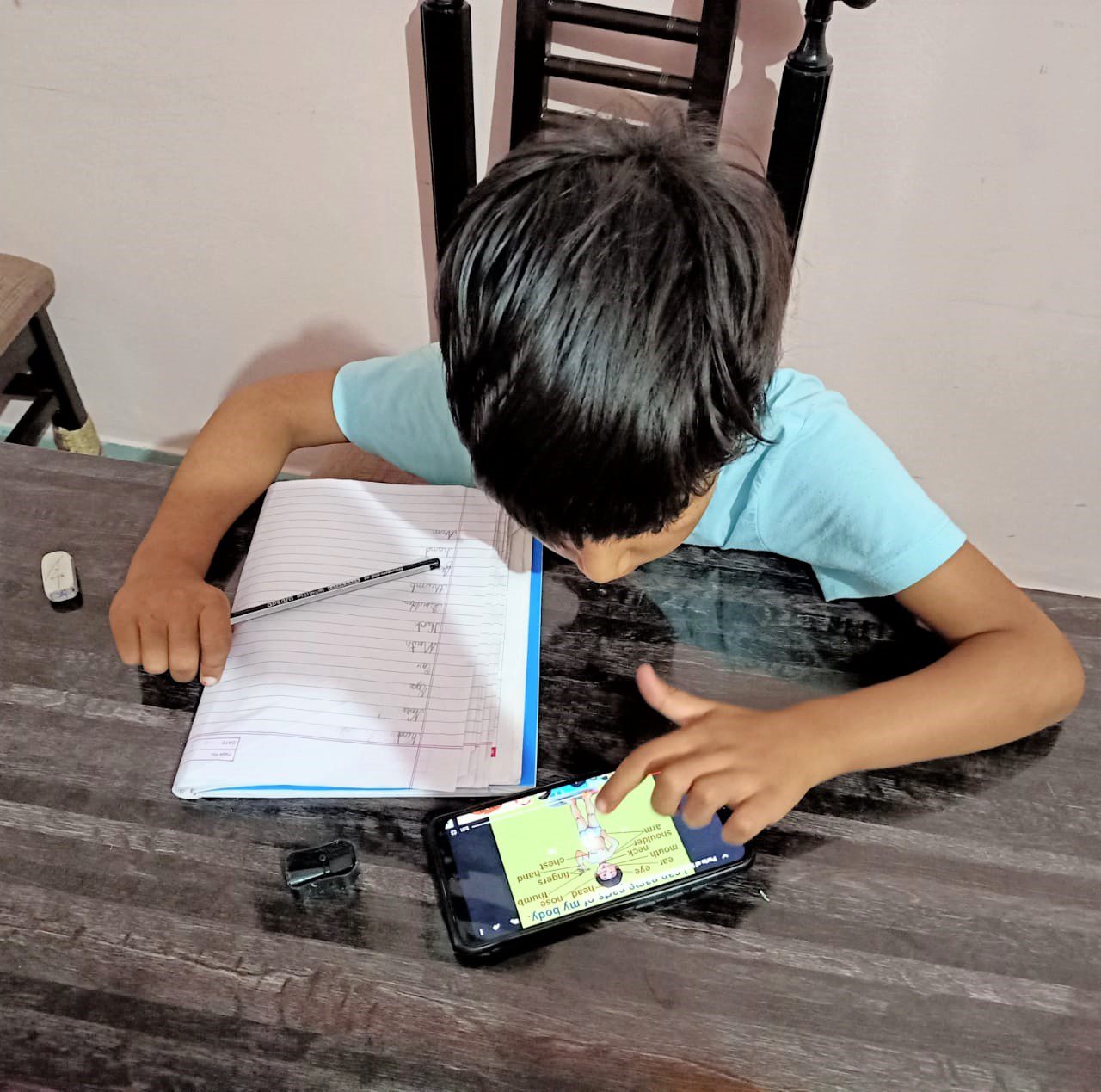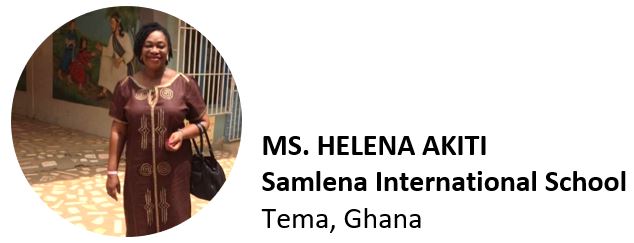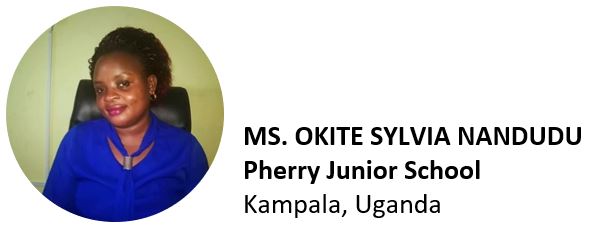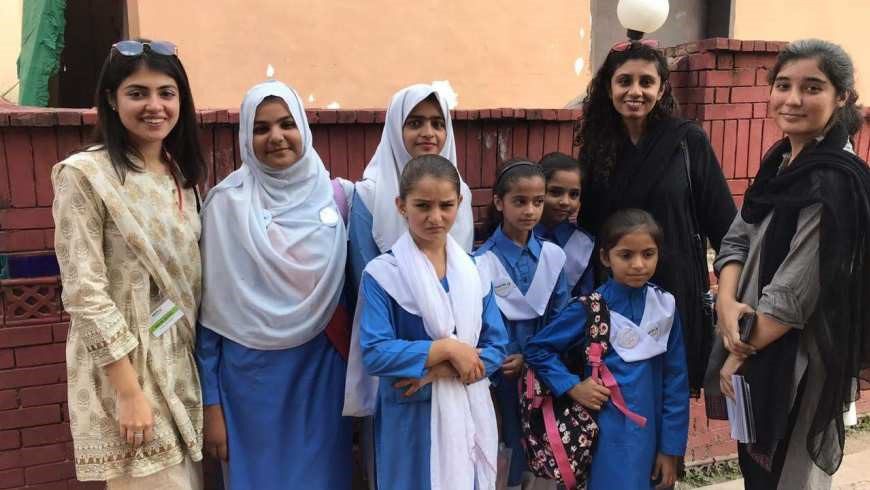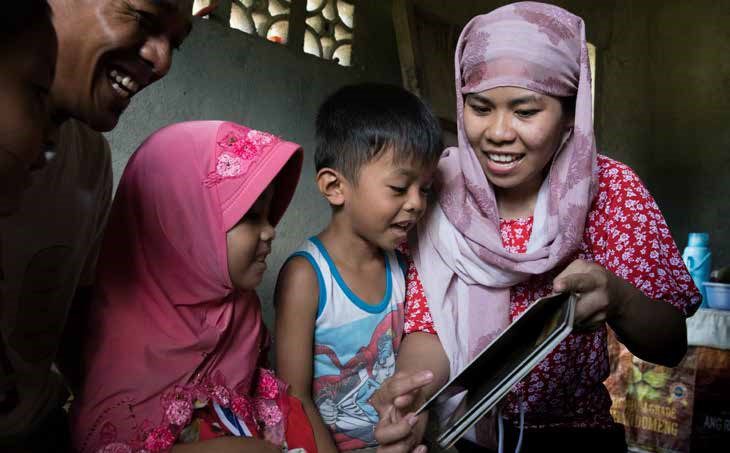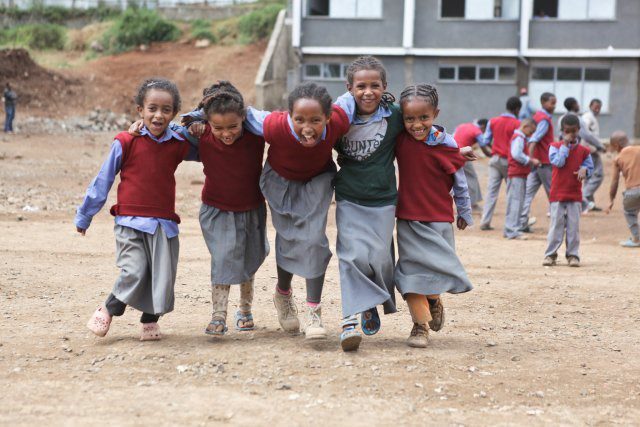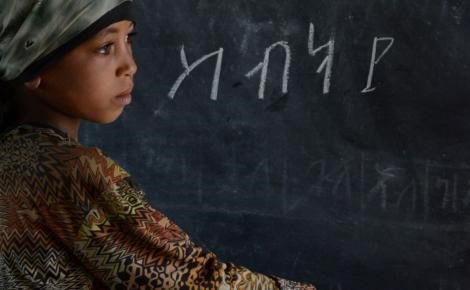This blog was written by Opportunity EduFinance and originally published on the Opportunity EduFinance website on 7 May 2020.
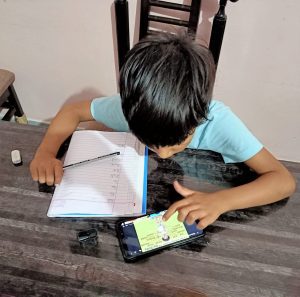 As schools remain closed across the globe due to COVID-19, Opportunity EduFinance is listening to school leaders on the front lines of education. This week, we interviewed five school leaders participating in our Education Quality program, asking them how they are interacting with their teachers, parents and student, as well as their most pressing concerns.
As schools remain closed across the globe due to COVID-19, Opportunity EduFinance is listening to school leaders on the front lines of education. This week, we interviewed five school leaders participating in our Education Quality program, asking them how they are interacting with their teachers, parents and student, as well as their most pressing concerns.
They spoke about similar challenges and innovations across these schools, which have been echoed by the hundreds of conversations our Education Specialists are having with school leaders every day. We on the Opportunity EduFinance team are grateful for their transparency, courage, and tireless efforts to navigate an incredibly challenging situation for the sake of their students. We count it a privilege to partner with them and are committed to growing our relationships and supporting these educators.
Meet our School Leaders
It has been 17 years since Ms. Helena Akiti opened the doors of Samlena International School in Tema, Ghana. After moving into the area which had limited development at the time, she began noticing large numbers of children walking in the streets during school hours. “I decided not to stay home doing nothing. I planned to start a preschool.” Today the school has over 200 students from early childhood through junior high school.
Located in the “El Pueblo” neighborhood of Barranquilla, Colombia, the Fundación Centro de Atencion Superar early childhood center serves 35 children. Some of the children enrolled have disabilities and are from very low strata (0 and 1), which is a six-level social class system in Colombia. The children’s families earn their living from day labor, such as selling as a vendor, and many are single mothers and single fathers.
Located in the northern Indian state of Rajasthan, Star Academy has been in operation since 2015, offering K-12 grades to over 1,000 students. The academy is led by Principal Monica Nerwan and recently received its affiliation with the Central Board of Secondary Education in India.
Mr. Jackson started his primary school with only 15 students in 3 classes in 1998. Within the year demand by parents to enroll their children was incredible, with 85 students enrolled by the end of the first year. Today the school is educating 400 primary students and 384 secondary students.
Prior to opening Pherry Junior School in 2011, Ms. Sylvia was working in downtown Kampala and arriving back home very late at night after her children were sleeping. Deciding she didn’t want to miss time with them anymore, she left her job and started a farm at her home. Looking around, she began to see more opportunity so she started a school to give children in her local community better access to education.
“What are your major concerns right now as your school is closed due to COVID-19?”
|
| Ms. Helena
GHANA |
Social Distancing. I’m concerned about how to handle social distancing if we do reopen. How will we effectively space out the children in class?
Finances. We have been closed for almost 2 months. We don’t know how long we will stay closed. When we go back I will have to pay the teachers the amount they stayed home. We may also have to get new staff to handle social distancing during eating, recess – all of this involves money. |
| Mr. Jackson
UGANDA |
Finances. When schools were closed we were at the peak of collecting school fees. It now becomes a challenge because teachers are continuing to ask ‘how are we going to maintain ourselves?’ People are not working, and they cannot look for extra income with the lockdown, so the solution is to ask the school.
|
| Ms. Sylvia
UGANDA |
Term Work & Exams. I’m concerned with how to finish first term work with learners. The Government has provided materials for the first term, as they want children to study at home. So we are planning to resume Term 2, but it may be difficult for them to catch up.
|
| Ms. Monica
INDIA |
Learners at Home. With lockdowns extending and exams cancelled in March, finding a way to teach students online is a priority. |
| Ms. Amneris
COLOMBIA |
School Closure. If the pandemic spreads, we could be forced to closed permanently. Many variables such as the economy’s impact on parents not being able to work and lack of resources for virtual classes could influence whether we can continue. Most parents do not have internet. Some do not have a computer and are not trained to enter virtual platforms to support their children, so that makes my task more difficult.
Finances. My other major concern is how to sustain and maintain my physical premises, covering the cost of rent and utilities in addition to paying teachers’ salaries, if there is not sufficient income to cover these commitments. |
“How are you currently communicating with your staff?” |
| Ms. Helena
GHANA |
We have always had a WhatsApp platform to communicate on with staff even while school was in session. We are not able to retrieve most of the school fees before schools were closed. I was able to pay teachers for March, but we are now in April and I don’t know where I will get money to pay them. They need to eat to survive. I’m very sure when school finally reopens some may not come back. They might need to find other work – especially those without teacher training certificates. |
| Mr. Jackson
UGANDA |
As the director, I communicate with them almost on a daily basis. I have to find out how they are and how they are coping. For my school, I’ve kept on 6 teachers around the school to help me continue planning in case the lockdown ends. For the rest of my staff I use phone calls and emails. Many of them are not really in a good situation. They were relying on the school, even for meals. I’ve even sent some that are in very tough situations advances of money because they don’t have these other renumerations at the school to rely on. |
| Ms. Sylvia
UGANDA |
I’m keeping in touch with the teachers and sending them airtime credit to work during the week. They are recording video and audio to post for the parents, giving simple guidance on what to do in lessons.I’ve paid them for March and told them to go stock up on food. Because they helped to remind the parents to pay they understand school fee collections were not yet complete. We also have a bank loan. While we can take a 6-month extension, I decided to clear the immediate installment due this period because the interest will continue to accrue. I might consider the extension after this payment. |
“How are you currently communicating with parents and students?How are teachers and parents engaging children in learning at home? “ |
| Mr. Jackson
UGANDA |
I have personally contacted about 95% of our parents. At the moment you engage parents, you expect you will remain together. I’m very sure they will come back. This situation has increased our bond – they are certain we are together and we are a part of them. I’ve sent some food relief to a small number of very very poor families, by sending them mobile money and asking them to please buy food for the family. |
| Ms. Monica
INDIA |
Coordinating among all the 1000 students and convincing their parents to adapt to online learning was challenging. There were some parents with a traditional mindset who clearly rejected the idea of online learning and some were even skeptical to be a part of it because they did not want to pay school fees for the lockdown period, but most of them agreed to this new model.
A structured timetable was prepared to ensure students did not stay glued to their mobiles for a long time. For primary grade students, teachers create videos, share rhymes and post them on WhatsApp group of parents. Parents also engaged with their children to ensure that they finish their classwork. To appreciate student’s work, teachers not only give stars and smileys but also upload some of the best work samples on their WhatsApp status which makes the child feel special. Grade 6th onwards students take part in zoom classes for all subjects which has seen a good response and attendance. |
| Ms. Amneris
COLOMBIA |
We created a general group of parents on WhatsApp where the information is sent to everyone. Group chats were also created for each grade. All the help and information that is in our hands is sent there. Class sessions are also sent daily, as we try to make classes enjoyable, playful, short and dynamic. We use various learning alternatives and propose resources that parents have at home to avoid generating additional expenses. Early in the morning we send an initial greeting to parents and students where they are encouraged and invited to stay home and do their best, along with the schedule of activities for the day. Short videos and audio is also sent to accompany activities. Parents are sending back evidence of their children’s work with a photo or audio message where the parent tells us how the child is learning.
The response of some parents has been good, though at the beginning it was not easy but it has improved. The first thing we did was dialogue with them and set the motto ‘Together we Can.’ For me the most important thing is constant communication with them so they do not feel alone. |
“Is school fee collection currently a challenge?What strategies are you considering for collecting fees and engaging parents once schools reopen?” |
| Ms. Helena
GHANA |
We had collected about 30% of fees for the term before school closed, which we used to pay January through March salaries. Now that is gone. We tried calling parents that didn’t yet pay for January through March, to say we need the money to sort out our teachers. But many of them will tell you they are also at home not working and don’t have money. When we re-open we will do one-on-one meetings with parents because that will be the only way to get some of the fees. We will ask them to do their best.
|
| Ms. Monica
INDIA |
Our only revenue is school fees, which are collected in the beginning of the academic year which begins in April. Without fees we have to freeze our teacher salaries. Most of our parents are daily wage earners or farmers who have lost their source of livelihood due to supply change disruptions. Many have returned back to their villages and will likely not come back to town until the economy revives, which will make it even harder to collect school fees. |
| Ms. Amneria
COLOMBIA |
School fees are a great challenge right now because my parents have not been able to work and have not been able to get their pension. We have made a payment agreement with each parent so they can pay little by little in installments. About 50% of the parents agreed and said they would do everything possible to pay, while the other 50% have not yet responded or have indicated they are going to withdraw their children because they have no way to pay. For parents with two or more children in our center, we are offering a discount to give them more freedom to pay what is possible. The truth is the situation is very complex. |
“Have your interactions with your Opportunity Education Specialist and school cluster been beneficial during this time?” |
| Ms. Helena
GHANA |
When Ms. Lordina joined the program as our Education Specialist, she came to my office and we went around to all the other schools on her list. She has very high potential and is open so that all teachers can relate to her. |
| Mr. Jackson
UGANDA |
I see Mr. Moses as our mentor. You can barely miss a day without getting his call. We are looking at strategies after this lockdown on how we can make our school better in case we have similar situations in the future. He has helped us develop our digital platforms on WhatsApp. We are also using the Facebook platform where we share ideas. |
| Ms. Sylvia
UGANDA |
The financial insights and planning on how to manage our resources have also been helpful. Right now I’m considering all costs, and the reading is really giving me insight into how to deal with the current situation. The interactions between other schools in our cluster helps us to think what other people are doing and learn from them. |
| Ms. Amneris
COLOMBIA |
Ms. Andrea strives to find the way all our education centers can get ahead in the face of this difficult situation. The most useful thing has been to stay in unity as a cluster. It makes us see that we are here to help and support each other, sharing our own expertise, resources, feedback with others and above all strengthen ourselves. She is also doing a great job getting specialized people to advise us on issues that we do not know about and find the best strategies. |

